During your first Jiu-Jitsu sparring sessions you will most likely feel like what it is to be drowning on the BJJ mats. But not to worry there are things to do which makes it easier to deal with it. Below I will list some simple tips which have helped me throughout the years and might be of use to you as well.
First off let me give you my thoughts on why this happens. Because it’s better to understand what you’re dealing with so you can cope with this uncomfortable drowning feeling in Jiu-Jitsu.
It’s simple really, this drowning feeling comes from nervousness. And not knowing what to expect or do when you’re being twisted up into a pretzel. That being said, it does get easier over time and subsides altogether after a while.
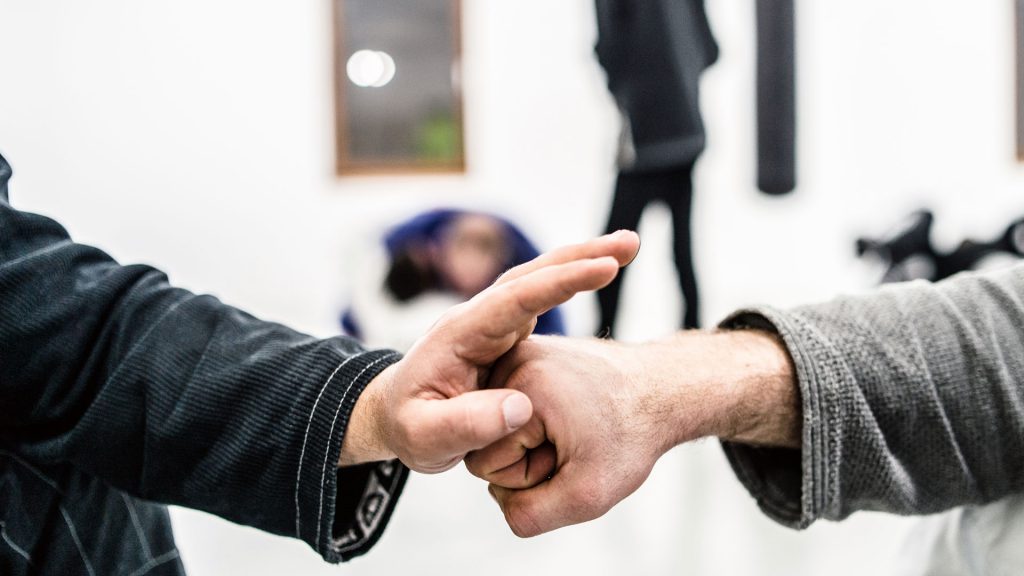
I’d also like to point out few thoughts from one of my favorite podcast hosts, Sam Harris – who I believe originally coined the term “The Pleasures of Drowning” in BJJ. Where Sam goes into depth why BJJ feels like drowning. And explains how even the experts in a striking-based art—boxing, karate, tae kwon do, etc. will be come humbled when first stepping on to the Jiu-Jitsu mats to spar with a BJJ black belt. Key takeaway here is that if even the expert martial artist will become humbled, it’s nothing to feel ashamed of when you’re just starting out your martial arts career.
Breathe And Relax
So let’s move onto the tips and advice I’ve found useful during my own sparring sessions. First and most obvious technique to battle nervousness in Jiu-Jitsu is of course breath and relax. This will probably become your mantra after a while. And keep ringing in your ears before every rolling session.
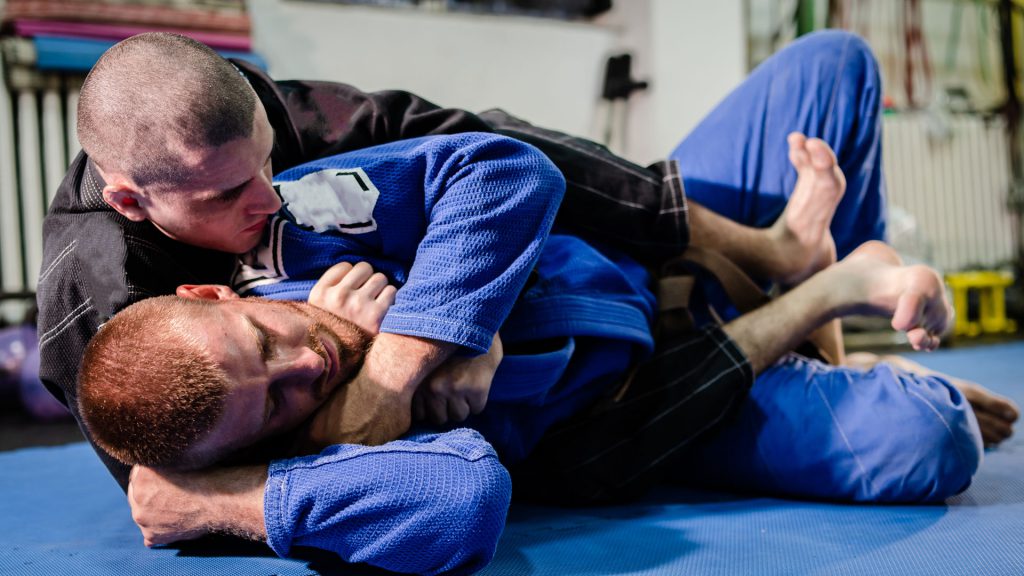
Just as with nervousness before your first Jiu-Jitsu class, same basic principles can be applied before your BJJ rolling sessions. While breathing might sound like an easy task at first glance, it’s actually not as simple as it would seem and will take some getting used to.
The process of thinking about relaxing becomes much harder when you’re being twisted up to a pretzel. Believe me, this sounds much worse than it actually is and I describe it like this on purpose. Because in all honesty, it is the closest I can describe what it feels like to me. Even though nothing big might not even be happening, all the legs, arms and rolling around will feel like a pretzel factory to a beginner. Still, that being said the first and most important advice is to just try and breathe. This will give the brain much-needed spare oxygen and the relaxing part will come by itself.
Use No Strength
As you’ll soon find out this advice is somewhat connected to the previous breathing tip – the less strength you use the less you’ll get tired. Sounds obvious right? Well, not so fast.
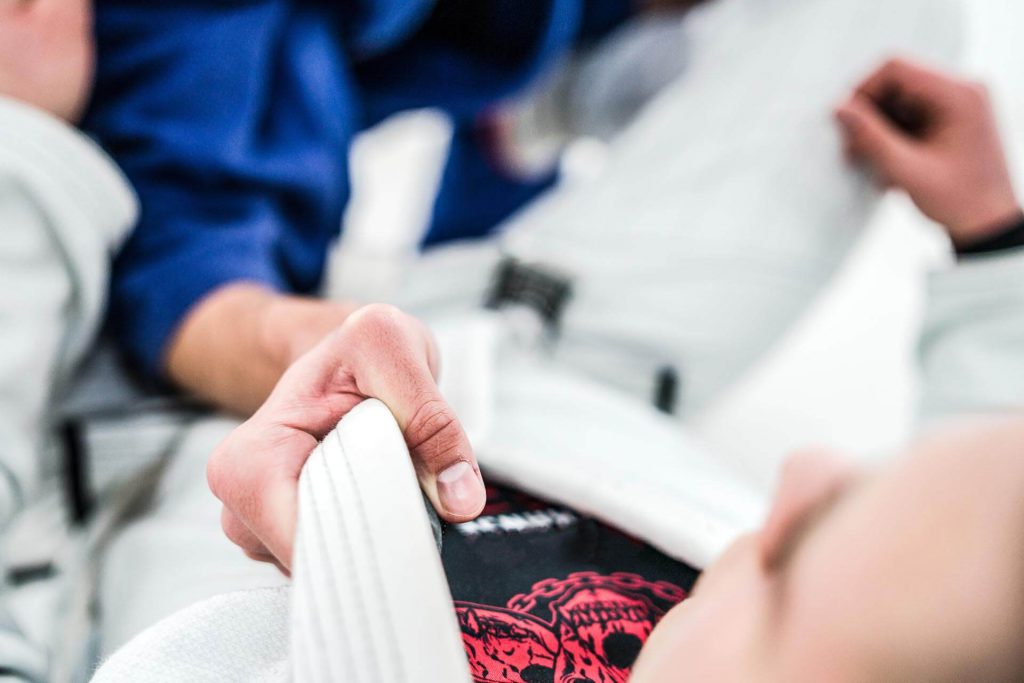
As soon as you begin your journey into sparring (not mandatory right away), you will discover that it’s very easy to find yourself holding onto to your opponent like your life depended on it. Needless to say this approach is not very efficient and not a useful way to spend your energy. However, that’s exactly how your first BJJ sparring sessions will go by. So best keep that “breathe and relax” mantra at hand. Also useful to note, that less strength means, less injuries. More on the topic here.
Choose Higher Ranked Opponents
While this might sound like somewhat of a counter intuitive proposal for your first few sparring sessions, it will help you immensely on your BJJ journey. As most of the higher level practitioners are eager to pass on their knowledge and will be much more gentle with you than another white belt beginner. With whom you will inherently be in a competition with, well sort of anyway.
So whenever possible during your sparring sessions try to find some blue belt or higher to roll with. They will take better care of you and maybe even give you pointers after sparring.
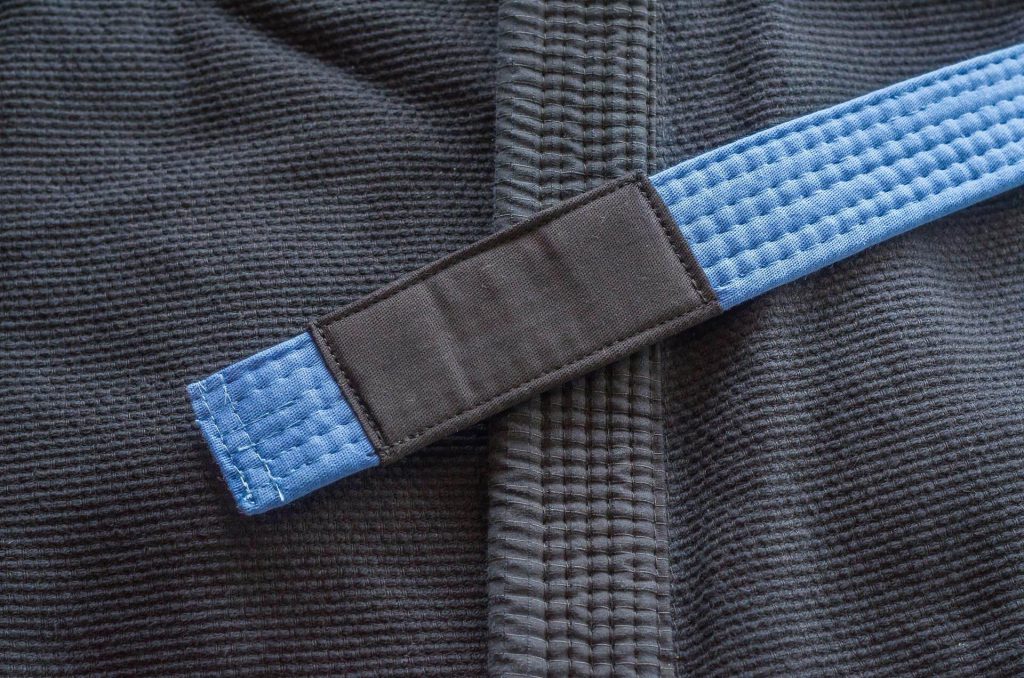
Also depending on the BJJ gym, it’s quite common to share thoughts on your sparring after the class. And needless to say you will get more insight from higher level Jiu-Jitsu players than novice freshmen.
Which is not to say that you cannot learn from both. White belts tend to be more aggressive and from time to time it’s best to experience this beginner style of fighting as well. It’s also an excellent gauge to measure whether your Jiu-Jitsu game has evolved to deal with this aggressiveness. Also gives you feedback on what to improve upon and what to look out for your next rolling session.
What’s The Worst That Could Happen?
Another very useful tool is to just think about what’s the worst that could happen. You’ll soon come to realize that the worst thing that you will come across on a Jiu-Jitsu mat is tapping out to a due to a submission or thousands of other BJJ finishing moves. Which of course is a little bit uncomfortable but nothing to be afraid of. This is also the part that will make your Jiu-Jitsu evolve. Every sparring session is like a gold mine of knowledge.

It will also get much easier after your first few tap outs. As then you already know that there is a way out of any uncomfortable Jiu-Jitsu position.
Set Small Targets For Your Sparring
Whether it’s lasting all sparring rounds that evening and still be able to go home on your own two feet. Or just lasting one round without clamping on to your opponent for the whole round, it’s a very helpful tactic to have some small goals in mind when going into sparring phase of your BJJ journey.
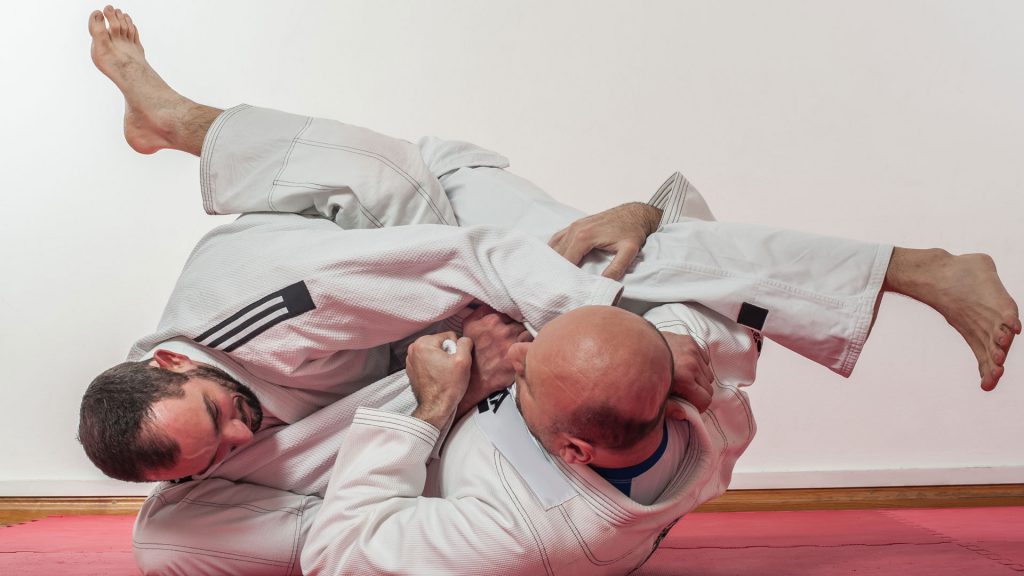
Even very small wins on the mat which at first might not seem like much, can make you feel accomplished and give you a much deserved boost for the next sparring session.
In conclusion
While there are many other principles that can be applied successfully, these have been my own experiences as best as I can describe them. And I’m sure you’ll find helpful as the most basic principles in Jiu-Jitsu are to relax and have fun.